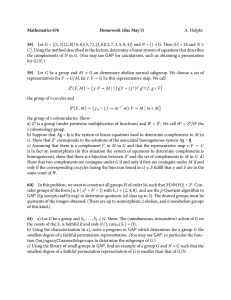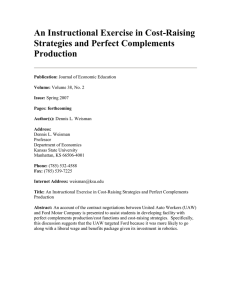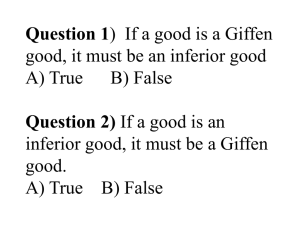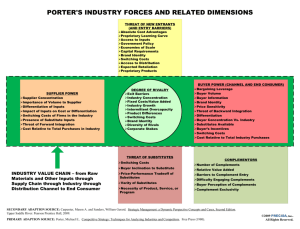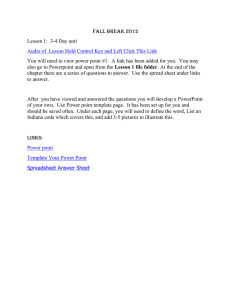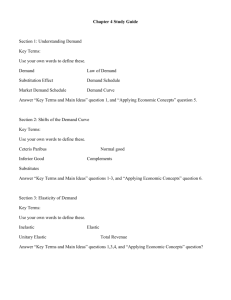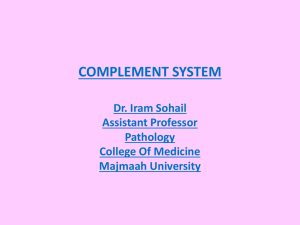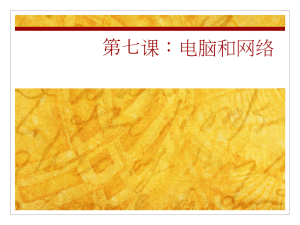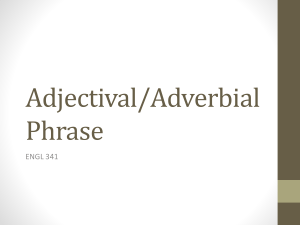Efective Techniques - NUC
advertisement
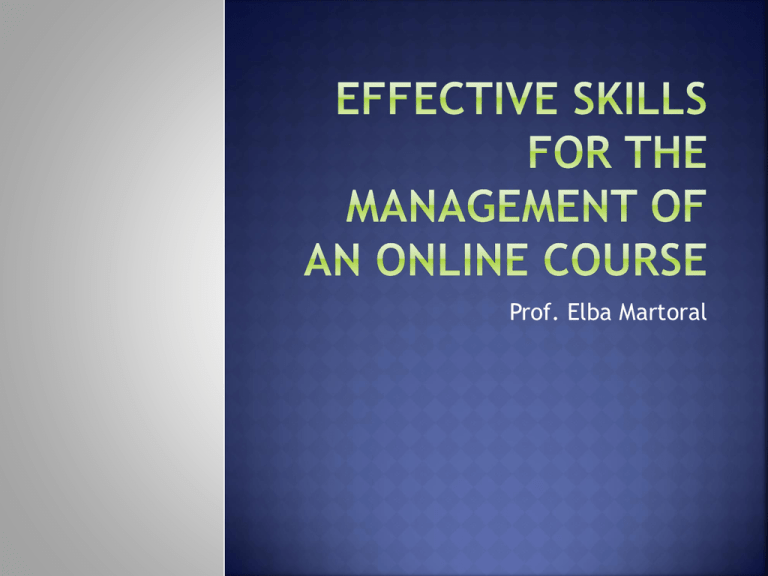
Prof. Elba Martoral State the importance of social learning when managing online content Show effective practices in an online course Distinguish activities and educational strategies that encourage collaboration and building knowledge in a virtual class Social learning in a virtual setting Effective practices in a virtual class Activities for a virtual class This workshop hopes to be a guide for the virtual facilitator in the management of an online course. It presents several aspects involving the social, emotional, psychological and cognitive dimensions of the human being. It is important to create spaces for socialization and study the reasons why a student abandons the course due to lack of interaction and communication. Do you transmit enough trust when communicating in an online course? Do your students share their worries with you? Think about this… It is important to self-evaluate ourselves and notice how we manage an online course Do you promote a sense of community among your students? Do you measure the statistics of attendance to an online course and student participation? Provide exercises to solve problems. Provide a space for interaction, collaboration and working in pairs. Design discussion questions to encourage discussions and debates. Use different formats to encourage critical thinking, such as cases about real problems. Relate new content to previous one. Explain the expected outcomes of the learning activities students should do. Communicate in a friendly tone and transmit trust. Allow students to oversee the discussion in a virtual conference. Online learning may create tension if students are not clear about how virtual education works. The online facilitator should: offer details about the expected outcomes through a syllabus and activities calendar have an opening activity, development and a closing activity Virtual conferences should encourage participation and collaboration and should be carried out in an organized manner; they should have an opening activity, development and a closing activity. Round Table • Explores topics • Different points of view • Provides facts and opinions • Tackles controversial topics Guided Reading • In-depth theoretical aspects • Points of view of relevant authors • Analysis and synthesis • Complements other techniques Programmed Instruction • Financial analysis • Learning concepts • Learning procedures Conference or exposure • • • • Big groups Limited time Experts Complements other techniques • 20 minutes maximum Research Seminar • Participation of a big group • Processes plenty of material • Takes advantage of the resources • Research ability • It’s interactive Forum • Increases information • Analyzes information • Favors an environment of openness and trust • Develops an attitude of participation Movie Theater, Theater and Song Analysis • Analyzes messages in retrospect • Complements other techniques Brainstorm • Creative thinking • Critical thinking • Problem solving • Autonomy and originality • Complements other techniques Structured Experience • Learning experience • Makes it easier to understand topics • Makes it easier to show emotions and experiences Small Group Discussion • Promotes creativity and participation • Takes advantage of knowledge and experience • Stimulates reflection and analysis Guided Discussion • Interaction between participants • Stimulates participation • Expresses ideas and feelings • Interpersonal communication • Discussion, analysis and synthesis Role Play • Learning through simulations of real facts • Promotes participation • Comprehension, life lesson • Analysis of their own behavior • Feedback Flipped Classroom • The student prepares the lesson previous to going to class Case Study • Uses real cases that are solved in the group through analysis, brainstorming, innovation and creative ideas Social Media • The student uses web content and shares information through web tools Student X has not submitted an assignment for two weeks, however he/she is very creative, although a bit shy. Which strategies would you use with this online student? Come up with a solution using the techniques previously discussed Angelo, Thomas & Cross K. Patricia, (1993) Classroom assessment techniques: A handbook for college teachers (2nd ed.) San Francisco, CA:Jossey-Bass Publishers. Ragan, L. (2007). Best Practices in Online Teaching. Retrieved from the Connexions Web site: http://cnx.org/content/m14943/1.5/ ANGEL RIVIÉRE. Desarrollo psicológico y Educación(II). comp.. Coll, C.; Palacios,J.;Marchesi, A. Ed. Alianza. Madrid. 1992 Correa, D. (2013) El éxito de los cursos en línea depende de su interacción. (Página web). Recuperado de: http://www.maestrosdelweb.com/editorial/el-exito-delos-cursos-en-linea/ Wormhole Live Learning Platform. Estrategias de Diseño e Implementación de clases en vivo. Recuperado de: http://fundacionevolucion.org.ar/sitio/wpcontent/uploads/2014/02/E-book-Estrategias-de-diseno-eimplementacion-de-clases-en-vivo.pdf
